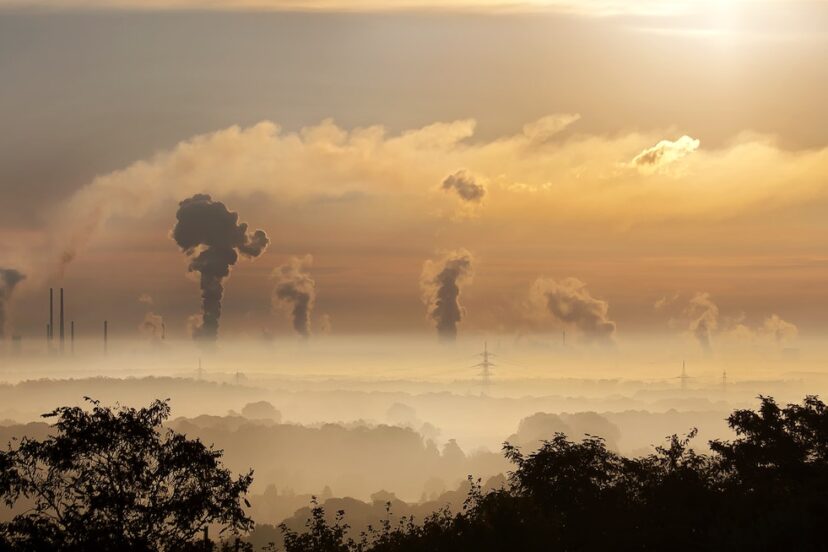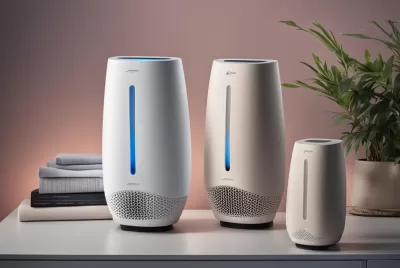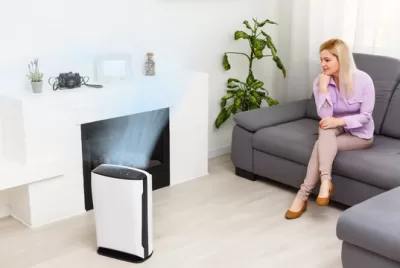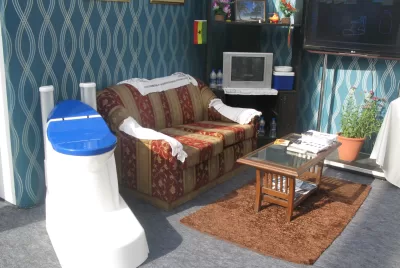Best Air Purifier for Smoke
"We may earn a commission for purchases made using our links. Please see our disclosure to learn more."
If you’re looking for the best air purifier for smoke, you’re in the right place. Smoke is a harmful pollutant that can cause allergies, asthma, and respiratory infections. Smoke particles can easily enter our respiratory system, causing damage to our lungs and other organs. This is why having an air purifier for smoke is essential. But with so many types of air purifiers on the market, how do you choose the best one for your home?

Understanding Smoke
Smoke is a complex mixture of particles and gases that can come from many sources, including tobacco, cooking, and wildfires. Smoke particles are tiny and can easily enter our respiratory system, causing harm to our health. The best air purifier for smoke is one that is specifically designed to remove these harmful particles from the air.

Types of Air Purifiers
Air purifiers for smoke come in different types, including HEPA, carbon, activated charcoal, and UV-C. Each type of air purifier has its own advantages and disadvantages, and the best air purifier for smoke will depend on your specific needs.
HEPA air purifiers are highly effective in removing smoke particles from the air. They use a filter that captures 99.97% of particles as small as 0.3 microns. Carbon air purifiers, on the other hand, use activated carbon to absorb smoke particles and odors. UV-C air purifiers use ultraviolet light to kill germs and bacteria in the air.
Factors to Consider When Choosing an Air Purifier
Several factors must be considered when choosing an air purifier for smoke. First, consider the room size and choose an air purifier that is suitable for your room. You also need to consider the Clean Air Delivery Rate (CADR) rating, which measures the air purifier’s efficiency. Another factor to consider is the filter replacement cost, as some air purifiers require frequent filter replacements. Noise level is also an important factor to consider, especially if you plan to use the air purifier in your bedroom or living room. Finally, you need to consider the power consumption of the air purifier.

Top 5 Air Purifiers for Smoke
| Air Purifier Type | HEPA | Carbon | Activated Charcoal | UV-C |
|---|---|---|---|---|
| Smoke Particle Removal | Highly effective | Absorbs particles and odors | Absorbs particles and odors | Kills germs and bacteria |
| Suitable Room Size | Small to large rooms | Small to large rooms | Small to medium-sized rooms | Small to medium-sized rooms |
| CADR Rating | 300-500 | 243-350 | Varies | Varies |
| Noise Level | 25-50 decibels | 27-43 decibels | Varies | Varies |
| Filter Replacement Cost | High | Reasonable | Low | Low to high |
Here are the top 5 air purifiers for smoke that are available in the market:
1. IQAir HealthPro Plus
The IQAir HealthPro Plus is a HEPA air purifier that is highly effective in removing smoke particles. It has a CADR rating of 300, making it suitable for large rooms. The air purifier is also relatively quiet, with a noise level of 25 decibels. The filter replacement cost is high, but the filters last longer than other air purifiers.
2. Coway Airmega 400
The Coway Airmega 400 is a carbon air purifier that uses activated carbon to absorb smoke particles. It has a CADR rating of 350, making it suitable for large rooms. The air purifier is also relatively quiet, with a noise level of 43 decibels. The filter replacement cost is reasonable, but the filters need to be replaced frequently.
3. Honeywell HPA300
The Honeywell HPA300 is a HEPA air purifier that is highly effective in removing smoke particles. It has a CADR rating of 300, making it suitable for large rooms. The air purifier is also relatively quiet, with a noise level of 50 decibels. The filter replacement cost is reasonable, but the filters need to be replaced frequently.
4. Blueair Classic 605
The Blueair Classic 605 is a HEPA air purifier that is highly effective in removing smoke particles. It has a CADR rating of 500, making it suitable for large rooms. The air purifier is also relatively quiet, with a noise level of 32 decibels. The filter replacement cost is high, but the filters last longer than other air purifiers.
5. Winix 5500-2
The Winix 5500-2 is a carbon air purifier that uses activated carbon to absorb smoke particles. It has a CADR rating of 243, making it suitable for medium-sized rooms. The air purifier is also relatively quiet, with a noise level of 27 decibels. The filter replacement cost is reasonable, and the air purifier has a unique PlasmaWave technology that helps remove smoke particles.
Comparison Table
Here’s a comparison table of the top 5 air purifiers for smoke:
| Air Purifier | Type | CADR Rating | Noise Level | Filter Replacement Cost |
|---|---|---|---|---|
| IQAir HealthPro Plus | HEPA | 300 | 25 decibels | High |
| Coway Airmega 400 | Carbon | 350 | 43 decibels | Reasonable |
| Honeywell HPA300 | HEPA | 300 | 50 decibels | Reasonable |
| Blueair Classic 605 | HEPA | 500 | 32 decibels | High |
| Winix 5500-2 | Carbon | 243 | 27 decibels | Reasonable |
Insider Tips
- Consider the type of smoke in your home when choosing an air purifier.
- HEPA air purifiers are highly effective in removing smoke particles.
- Consider the CADR rating and noise level of the air purifier.
- Take into account the filter replacement cost and the power consumption of the air purifier.
Conclusion
Case Study: The Importance of an Air Purifier for Smoke
While John and Mary had always been smokers, they never realized how much their habit affected their home’s air quality. It wasn’t until their son, Tim, began to develop asthma that they realized something needed to change.
After researching the harmful effects of secondhand smoke, John and Mary decided to invest in an air purifier for their home. They chose the Blueair Classic 605 after reading about its effectiveness in removing smoke particles.
Within weeks, Tim’s asthma symptoms began to improve, and he was able to breathe easier. John and Mary also noticed a significant improvement in the air quality of their home, and they no longer had to worry about the harmful effects of secondhand smoke on their family’s health.
Since then, John and Mary have become advocates for air purifiers, encouraging their friends and family to invest in one for their homes. They’ve also made a conscious effort to reduce their smoking habits, not just for their health but for the health of their loved ones.
Their experience has taught them the importance of having an air purifier for smoke in the home, not just for those who smoke but for everyone’s health and well-being.
Choosing the best air purifier for smoke can be a daunting task, but it’s essential for maintaining clean and safe indoor air quality. Consider the type of smoke in your home, the room size, CADR rating, filter replacement cost, noise level, and power consumption when choosing an air purifier. The top 5 air purifiers for smoke are IQAir HealthPro Plus, Coway Airmega 400, Honeywell HPA300, Blueair Classic 605, and Winix 5500-2. Each air purifier has its own advantages and disadvantages, and the best air purifier for smoke will depend on your specific needs. We hope this guide has helped you make a more informed decision and choose the best air purifier for smoke to keep your home smoke-free.
Q & A
Q. Who makes the best air purifier for smoke?
A. Many brands do, but Coway and Winix are top-rated.
Q. What features should I look for in an air purifier for smoke?
A. HEPA filter, activated carbon filter, and high CADR rating.
Q. How do air purifiers for smoke work?
A. They use filters to trap smoke particles and release clean air.
Q. What if the air purifier doesn’t work for me?
A. Most brands offer refund or exchange policies for customer satisfaction.
Q. How often do I need to change the filters?
A. It depends on usage, but typically every 6-12 months.
Q. What if the air purifier makes too much noise?
A. Look for models with low decibel ratings or noise-reducing features.









